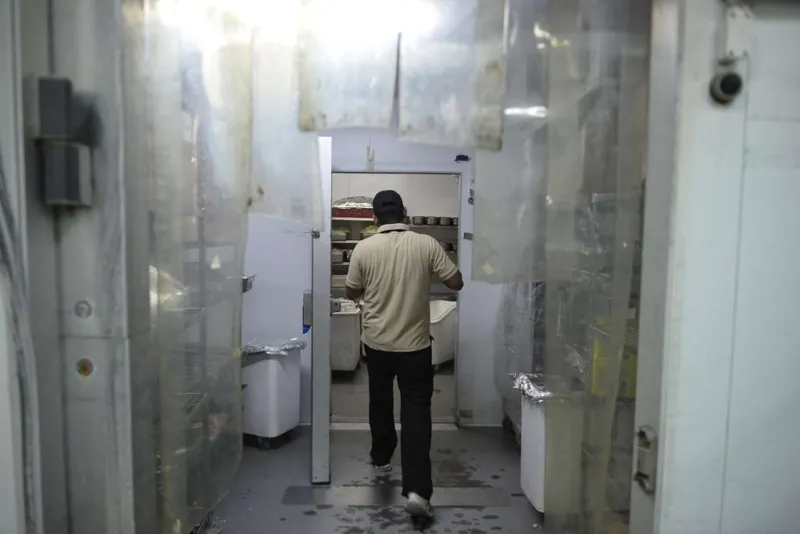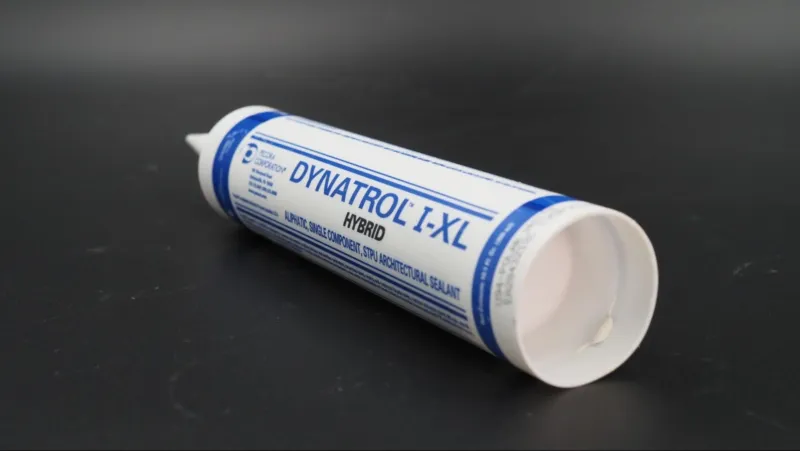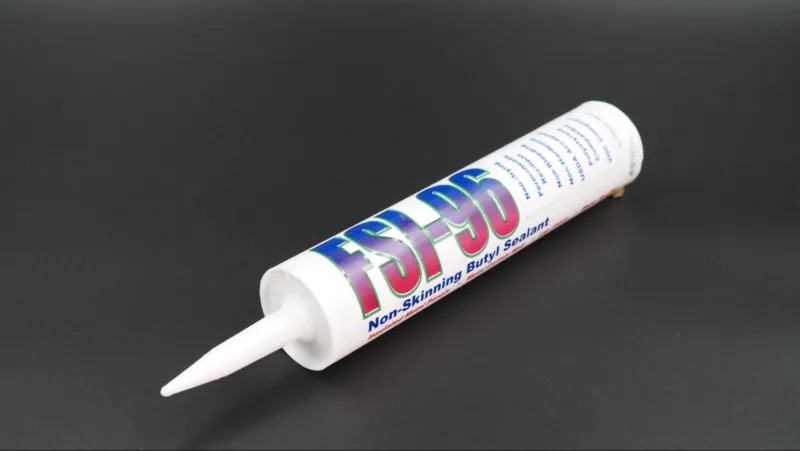This article discusses the importance of using appropriate sealants for walk-in freezers. While insulation and cooling systems are necessary for ensuring durability, energy efficiency, and operational continuity, the significance of sealants is often overlooked. Our discussion will primarily focus on the selection of sealants, including silicone sealants specifically designed for freezers, sealants for panels in walk-in freezers, and food-grade silicone sealants.

The Importance of Sealants in Freezers
Sealants play a pivotal role in maintaining the functionality and efficiency of walk-in freezers. They provide a protective barrier that ensures the cold air stays in and the warm air stays out, to significantly reduce energy consumption. High-quality sealants like butyl-based sealants also protect your freezer's critical assets from destructive icing. Let's delve deeper into why sealants are necessary and how they contribute to a freezer's overall performance.
Securing Thermal Efficiency
Sealants ensure the optimal thermal efficiency of a walk-in freezer by preventing air leakage. They seal the joints between panels, to maintain the internal temperature and reduce the load on the cooling system. A silicone sealant for freezers, especially a premium-grade one, can sustain the low temperatures inside the freezer, to help ensure a high level of thermal efficiency.
Preventing Moisture Ingress
Moisture ingress can be destructive to walk-in freezers. It can lead to the formation of ice within the insulation and panels, which degrades the insulation value, decreases the lifespan of the freezer, and increases energy consumption. Walk-in freezer panel sealant provides a robust barrier against moisture to prevent these issues.
Maintaining Sanitation Standards
For walk-in freezers used in the food industry, maintaining high sanitation standards is crucial. A food-grade silicone sealant is designed to be safe for environments where it may come into direct or indirect contact with food. It prevents the growth of mold and bacteria, to help ensure the safety and cleanliness of the stored food products.
Butyl vs. Silicone Sealants for Walk-in Freezers
Silicone and butyl sealants both have their distinct advantages. The choice between the two often depends on the specific requirements of the application.
Silicone Sealants

Silicone sealants are widely used due to their excellent flexibility and durability. Key advantages of silicone sealants include:
- Thermal Stability: Silicone sealants retain their elasticity and bonding strength even under the influence of severe cold or elevated temperatures.
- UV and Ozone Tolerance: The inherent resistance of silicone sealants to ultraviolet light and ozone makes them a fitting choice for circumstances that entail such exposure.
Silicone sealants have a strong adhesive capability that can bond with various materials, to provide a long-lasting and waterproof seal.
Silicone sealants can be more challenging to apply than butyl, and they may not adhere as well to some surfaces, such as painted metals.
Butyl Sealants
Butyl sealants offer different advantages, especially in walk-in freezer applications:
- Low Temperature Performance: Butyl sealants remain flexible at extremely low temperatures, making them ideal for use in walk-in freezers.
- Water Resistance: They provide an excellent water barrier to effectively seal joints and seams against moisture ingress.
- Long Lifespan: Butyl sealants are known for their durability and can provide a long-lasting seal.
- Adhesion: They adhere well to many surfaces, including those that silicone may struggle with, such as painted metals.
In summary, both silicone and butyl sealants can work well for walk-in freezers. The choice between the two should be based on the specific needs of the application, such as the operating temperature, the materials involved, and exposure to UV light.
Choose a Food Grade Sealant
Food-grade butyl is a specialized sealant that brings several critical benefits to the table:
- Resistance to Microorganisms: It contains an antimicrobial agent that inhibits the growth of bacteria and mildew. This feature is crucial for maintaining the sanitary conditions required in food storage and preparation areas.
- Durability at Low Temperatures: Walk-in freezers operate at very low temperatures. Food-grade butyl sealant is designed to remain flexible and maintain its sealing properties in these conditions, by preventing air and moisture leakage.
- Sealing Efficiency: It provides an excellent seal, filling gaps and forming a barrier against air and moisture intrusion. This enhances the energy efficiency of the walk-in freezer and helps maintain consistent internal temperatures.
- Compliance with Regulations: By using food-grade butyl sealant, businesses can ensure they're meeting or exceeding health and safety regulations related to food storage.
Choosing the Right Sealant: The Role of Butyl Sealant
Among the various sealant options, premium-grade butyl-based sealant stands out. Here's why:
- Exceptional Adhesion: It adheres to a variety of surfaces and provides a secure and durable seal.
- Resistance to Extreme Conditions: It can withstand extreme temperatures and conditions inside the walk-in freezers.
- Long Lifespan: Due to its durable composition, butyl sealant lasts longer than other types.
- Food Safety: With its non-toxic properties, it's safe to use in food-related applications, acting as a reliable freezer gasket sealant.
Fastener Systems Walk-in Freezer Panel Sealant
FSI-96 Non-Skinning Butyl
Fastener Systems FSI-96 is a non-skinning butyl sealant that has been officially accepted by the USDA. Known for its non-hardening properties, FSI-96 ensures a durable and flexible seal that can withstand a variety of conditions. It features reduced webbing, that makes it easier to apply and it ensures a cleaner, more uniform seal.

It has controlled viscosity for consistent application across a variety of surfaces, and promises easy clean-up, which means less hassle for the end-user.
FSI-96 sealant is specifically designed for use in:
- Insulated metal panel constructions
- Walk-in freezers
- Metal building construction
It has been expertly modified to decrease webbing characteristics, which results in a smoother application and improved extrusion. One of the key features of FSI-96 is the inclusion of an antimicrobial agent. This component actively inhibits the growth of mildew and bacteria, which makes it an ideal choice for environments that require stringent hygiene standards.
Furthermore, it has gained USDA acceptance for its safe usage in meat and poultry plants, affirming its role in ensuring food safety.
Protect Your Walk-In Freezer with High-Quality Butyl Sealant from Fastener Systems Inc.
Fastener Systems Inc. offers sealants that cater to the unique needs of walk-in freezers. Not only do we provide sealants for freezers and other uses, we also offer a wide range of fasteners and tools.


